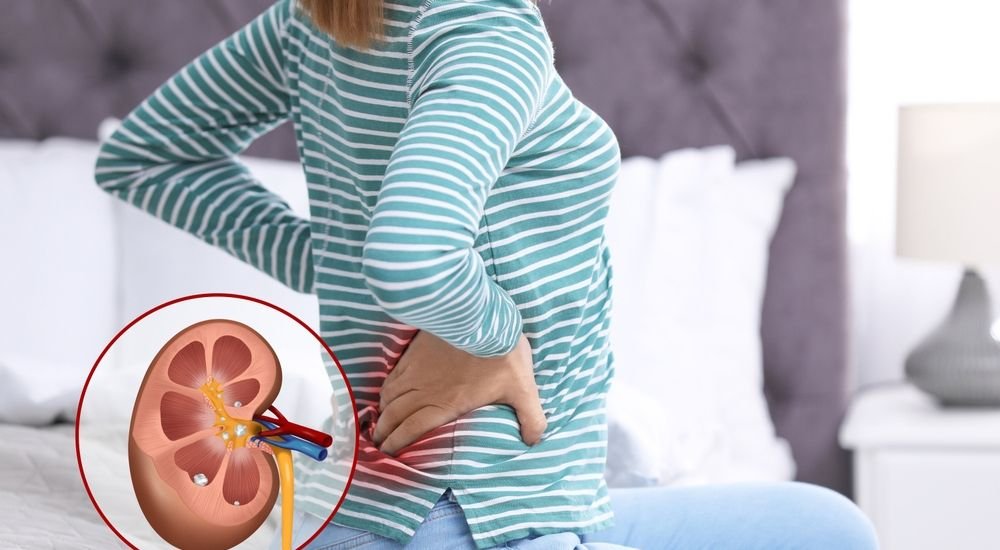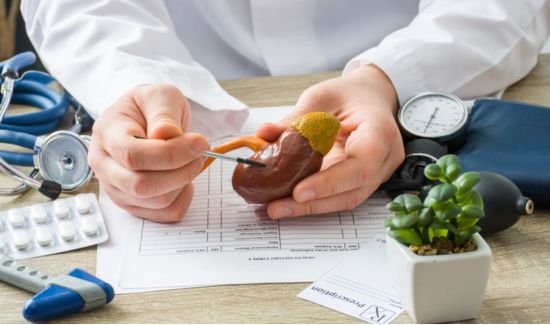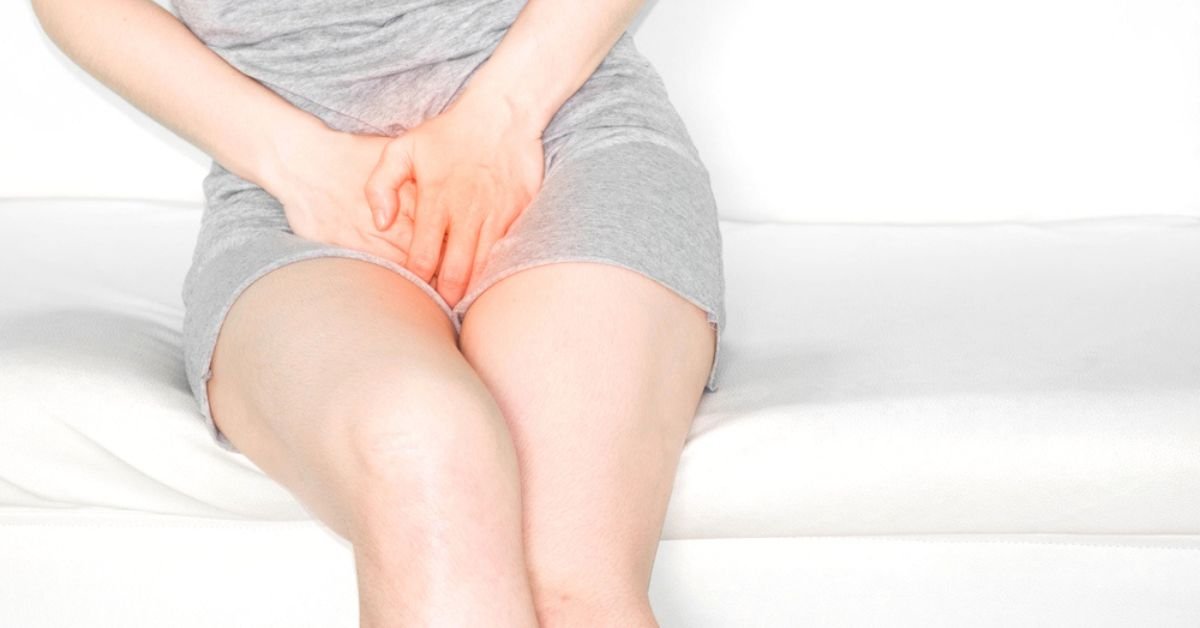Imagine that you’re doing your daily routine work, but then you feel intense pain in your numb areas. You panic immediately and wonder what is creating discomfort in a region so sensitive as your clitoris.
You might be surprised to learn how a kidney stone causes havoc and pain in the clitoris, which you would least think about!
In today’s article, we delve into the unexpected connection between kidney stones and clitoral pain. By studying how these stones move through the urinary tract, we’ll understand what causes pain in this sensitive area and find out more about symptoms and treatments.
What is a Kidney Stone?
Kidney stones, also known as renal calculi, nephrolithiasis, or urolithiasis, are hard deposits that form in the kidneys. It is usually made up of minerals and salts like calcium oxalate or uric acid that form inside your body.
Kidney stones that are passing are quite painful. Otherwise, if they recognize it in time then it does not cause any severe damage.
Depending on the size of the kidney stone, you may need nothing more than drinking a lot of water or taking medications if it’s small in size, otherwise, if stones become stuck in the urinary tract or other serious complications then surgery may be needed.
Causes of Kidney Stones
The following are the main Causes of Kidney stones:
- drinking not enough water
- eating food that contains too much sugar or salt
- obesity
- excess body weight
- weight loss surgery
- eating too much fructose correlates
Symptoms
Overall symptoms of kidney stones for both (males and females) include:
- feeling a sharp pain in the side, and back, below the ribs
- blood in the urine
- nausea or vomiting
- feeling pain or burning sensation while urination
- pain that radiates to the lower groin or abdomen
- urine that smells bad
Is kidney stone pain possible in the clitoris of women?
Yes, it’s true. While kidney stones are usually associated with lower back pain or abdominal discomfort, some women may experience an unusual symptom – pain in the clitoris.
Kidney stones are solid deposits of minerals that form in the kidneys and usually travel through the urinary tract. They can range in size from a grain of sand to a larger stone that causes severe pain or discomfort.
So why does this severe pain sometimes radiate to the clitoris? Experts have not fully understood the exact reason. However, one theory suggests that when a kidney stone passes through the ureter, it can irritate nearby nerves and cause referred pain sensations.
If you are experiencing constant or worsened pain in the lower abdomen, including the clitoris. We advise you to consult with your healthcare provider immediately for proper diagnosis and treatment. They may diagnose the symptoms using imaging tests like X-rays or CT scans.
Related: Clitoral Pain And Interstitial Cystitis: What’s The Connection?
5 Common Symptoms of Kidney Stones in Women

Kidney stones can cause several symptoms in women that can vary in severity. Here we’ll discuss five common symptoms of kidney stones in women.
1. Blood in Urine
Most people with kidney stones have blood in their urine. Blood-tinged urine, also called hematuria, is a common symptom of kidney stones. When a large kidney stone gets stuck in the ureter(the tube that drops the urine from the kidney to the bladder). When this happens the stone can cause bleeding and may give your urine a pinkish or reddish color.
2. Frequent Urination
If the kidney stones are blocking the ureter. You may start to see changes in your urination habits. When the stone moves through the urinary tract, it can irritate the bladder muscles. And you feel like you need to urinate all the time even if you just finished.
3. Nausea and Vomiting
Some women with kidney stones may experience nausea and vomiting due to severe pain or ureteral block.
These symptoms happen due to the shared nervous connection between the kidneys and the GI tract(a series of hollow organs joined in a long, twisting tube from the mouth to the anus). When the stones in the kidney trigger nerves in the GI tract, cause an upset stomach.
Nausea and vomiting can also be your body’s response to intense pain.
4. Cloudy or smelly urine
Healthy urine is clear and doesn’t have any unpleasant odor. Women who have foul-smelling urine could be a sign of infection in their kidneys or in any part of the urinary tract.
One of the studies in 2021 found that about 16% of people with acute kidney stones have UTIs.
Cloudiness is a sign of pus in the urine, known as pyuria. This smell comes from the bacteria that cause UTIs.
5. Abdominal or back pain
Women with kidney stones often experience strong pain in the lower back, side, or abdomen. Some women who’ve experienced kidney stones in life compare it to the pain of childbirth or getting stabbed with a knife.
The pain is so intense that it causes nearly half one million visits to emergency rooms every year.
Which are the risk factors for kidney stones?
Though anyone can be affected by the kidney stones, some of the factors can increase your risk. Some risk factors cannot be altered, while others can be controlled or changed.
You may get a higher risk of kidney stones if:
- you are a male
- you ever had kidney stones before
- somebody in your family has kidney stones
- you don’t drink enough water
- your diet is rich in salt, protein (sodium), and/or sugar
- you are obese or overweight
- you suffer from diabetes, it is likely that you are
- You are suffering from polycystic kidney disease.
- you eat a diet high in red meat, or high in the oxalates
When to see a doctor

Experiencing kidney stone pain in the clitoris can be very distressing and uncomfortable.
If you are experiencing any severe pain in your clitoris, it is essential to seek with your healthcare professional. This could indicate that the kidney stone has become lodged or is causing complications.
Seek with your doctor if you have the following symptoms, which could indicate that you have serious complications or any infection:
- experiencing severe pain that you can’t get comfortable
- bloody urine
difficulty in passing urine
Conclusion
Kidney stones are hard deposits of minerals and salt that form in your kidneys and can travel to other parts of your urinary system.
Understanding kidney stone pain in the clitoris has been quite informative. We have explored the causes of kidney stones, and go deep into the possible connection between kidney stone pain and the clitoris, and discussed common symptoms women may experience. This topic requires further research and medical attention.
Don’t hesitate to seek medical help if you experience intense or constant pain in your clitoris due to kidney stones.
FAQ
Can kidney stones cause pain in the clitoris?
Yes, kidney stones can sometimes cause referred pain that is felt in the clitoris. It mostly happens when the stone irritates or blocks a ureter, causing discomfort radiating nearby areas.
What are the common symptoms of kidney stones in women?
Some common symptoms of kidney stones in women include severe abdominal or back pain, frequent urination, blood in urine, cloudy or foul-smelling urine, and nausea or vomiting.
Can kidney stones be prevented in women?
Yes, it can be prevented by making some changes in your lifestyle like drinking enough water, eating a balanced diet, and avoiding food that increases the risk of kidney stone formation.

Dr. Usman is a medical content reviewer with 12+ years of experience in healthcare research and patient education. He specializes in evidence-based health information, medications, and chronic health topics. His work is based on trusted medical sources and current clinical guidelines to ensure accuracy, transparency, and reliability. Content reviewed by Dr. Usman is for educational purposes and does not replace professional medical advice.
